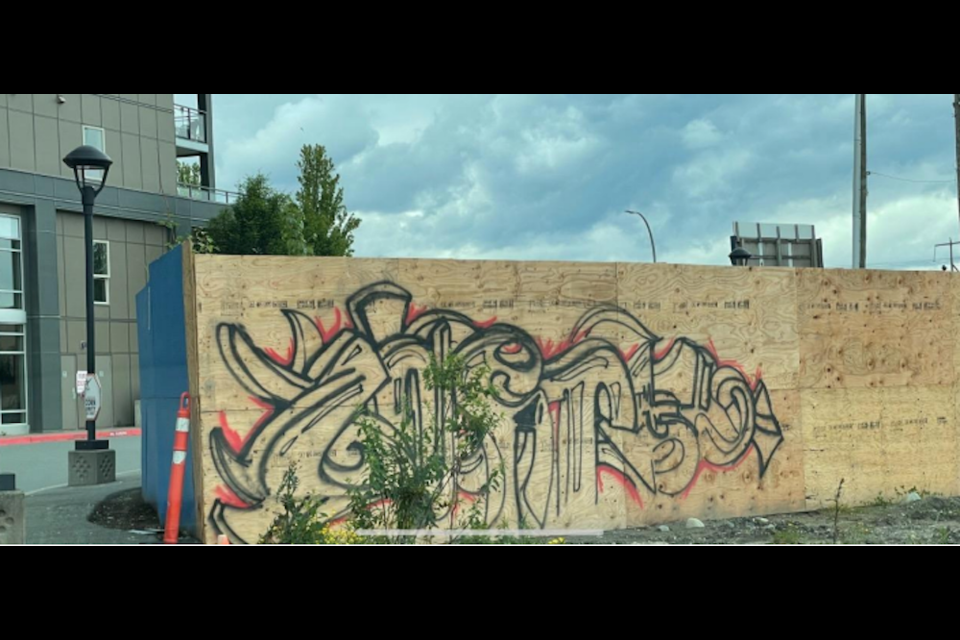Port Coquitlam wants to ban the sale of bear spray and spray paint to minors and require retailers to lock up materials used for graffiti after a rise in vandalism and reports of pepper spray attacks in the city.
A 35 per cent increase vandalism in the past year, plus instances of minors using bear spray as a weapon in city facilities and public places, has prompted city staff to propose bylaw changes restricting these items.
In a report to council this week, staff say vandalism has long been a problem, with most efforts to combat the crime reactionary rather than preventative.
But in the last several months, Lions and Settlers parks, as well as the city's new Port Coquitlam Community Centre, have been damaged by vandals, with benches, public washrooms and picnic areas hit with graffiti tags and comments, often racist or vulgar, according to the city.
Staff are recommending enhancing enforcement tools by amending the Business Bylaw to require retailers to lock up spray paint and similar permanent markers and restrict retailers from selling to minors.
Bear spray used as a weapon
"The rationale for having retailers lock-up spray paint and like items is that it makes these items less accessible, as customers will have to ask for the products. Businesses will also be required to lock up bear spray as well to make it harder for minors to get it and use it as a weapon," the report states.
In 2019, bear spray was used in an incident at Terry Fox Secondary, where a youth was arrested and later charged.
The manager of PoCo Building Supplies said he is not sure what difference the rule changes will make as minors rarely purchase spray paint at his store.
However, Dustin Phillips said he is happy to comply to make it harder for vandals to acquire paint and markers to deface public and private property.
Phillips also expressed concern that spray paint could be used for "huffing." Huffing is a type of substance abuse that involves inhaling fumes from household substances in order to experience a high.
Schools also dealing with vandalism
"It's a step in the right direction," said Phillips, who said he might take action even before the city rules come into affect in order to reduce accessibility to minors.
"We could do that, it’s our business, we can say we don’t sell spray paint to anybody under 18 for huffing reasons."
However, not all taggers use spray paint and banning or reducing accessibility to spray paint or markers might not stop all vandalism in the city.
Materials could be stolen or purchased in another jurisdiction or other paint could be used to create graffiti.
The Tri-City News recently spotted a discarded and empty can of spray-on hair colouring next to a commercial waste bin that had been tagged with the blue hair colouring.
School District 43 also deals with periodic cycles of vandalism at schools, including one recent graffiti incident at Birchland Elementary School in Port Coquitlam, where someone had spray-painted a large penis.
A spokesperson from School District 43 (SD43) said at the time that the graffiti was cleaned up as soon as the district was notified.
Vancouver BIA given $500,000 to tackle graffiti
"Unfortunately inappropriate messages and damage to schools in the form of graffiti happens occasionally," stated spokesperson Ken Hoff in an email to the Tri-City News.
District crews work as quickly as possible to remove the offending messages, Hoff said, in order to minimize the potential exposure to students and the community.
Each year SD43 spends thousands of dollars repairing vandalism.
In Vancouver, meanwhile, where taggers have targeted Chinatown for racist graffiti, the city is giving the local BIA $500,000 and artists $20,000 to deal with the problem, according to the Tri-City News' sister paper Vancouver is Awesome.



